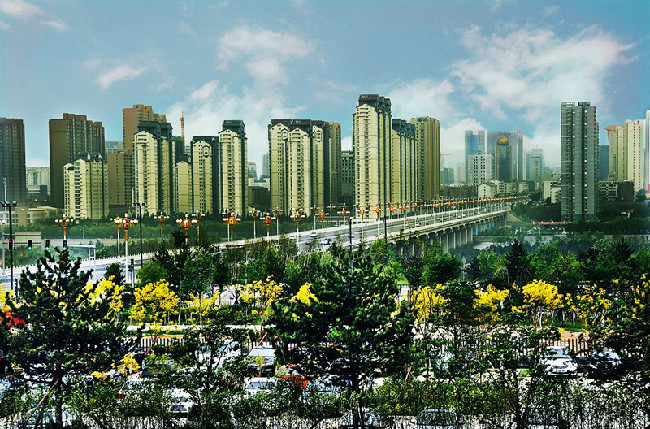Ecological Civilization
- Ayrıntılar
- Üst Kategori: ROOT
- Kategori: Ecology Writings
Ecological Civilization
Proceedings
International Conference on
Ecological Civilization and Environmental Reporting
Yale Center Beijing
June 16, 2015
Sponsors
Communication University of China
Pulitzer Center on Crisis Reporting
Yale School of Forestry and Environmental Studies
Introduction
It is easy to assume that China’s environmental challenges are China’s alone. The bad air or unsafe food or toxic rivers we read about have no effect on us, we might think, and nothing to do with the world’s demand for the flood of inexpensive, high-quality consumer goods that has fueled the Chinese economic miracle. But “China is a global factory,” says anthropologist Dan Smyer Yu of Yunnan Minzu University. “However you consume, whatever you consume, pay attention to the label ‘Made in China.’ So each of us has a responsibility for the environmental practices of China. China’s environmental issue is a global issue. We have to take responsibility, each of us.”
 Smyer Yu was among an extraordinarily diverse group of specialists who gathered at Yale Center Beijing in June to engage an issue that is close to home for us all—the state of our environment. But they also addressed a dimension of this topic that is new, and significant—how our diverse religious and cultural traditions might contribute to assuring a sustainable, healthy world for generations to come.
Smyer Yu was among an extraordinarily diverse group of specialists who gathered at Yale Center Beijing in June to engage an issue that is close to home for us all—the state of our environment. But they also addressed a dimension of this topic that is new, and significant—how our diverse religious and cultural traditions might contribute to assuring a sustainable, healthy world for generations to come.
The conference was co-sponsored by the Pulitzer Center, the Communication University of China, and the Yale School of Forestry and Environmental Studies. Participants included environmental specialists and business people, government officials and religious leaders, journalists and academics. Their presentations, and the notably candid exchanges of views, are excerpted in the pages that follow.
The conference took place just as the Vatican issued the Encyclical on the Environment, Pope Francis’s demand that the world address, in an equitable way, the realities of climate change. We are publishing these conference proceedings at another important moment, as the Pope makes his first visit to the United States and as China’s President Xi Jinping makes his first state visit to Washington.
Francis’s call for renewed environmental stewardship has generated huge public attention. Less noted, and striking, is comparable language from Xi and other senior Chinese leaders. “Ecological civilization” will address China’s environmental challenges, they pledge, in part by invoking the religious and cultural touchstones that have informed Chinese society for millennia—traditions such as Confucianism, Daoism, and Buddhism that had been officially suppressed during seven decades of Communist Party rule.
Is the Chinese government’s language on “ecological civilization” just rhetoric, a gauzy distraction from the grim statistics on pollution and regulatory indifference and a lengthening list of restrictions on non-government organizations? Earlier this year such concerns were vividly voiced in “Under the Dome,” the “Inconvenient Truth”-style documentary produced by a former CCTV presenter—and then underscored again this August by the deadly explosion of a chemical plant in the heart of Tianjin.
If that is your presumption you will be surprised by the proceedings of this conference. Within China, you will see, there are as many views on environmental issues—and sources of inspiration—as in the United States or Europe or beyond. Debate within China on these issues is more open than many of us might suppose. It is connected to a resurgence of public interest in Buddhism, Daoism, and Confucianism (and in “Western” traditions too) that is reshaping Chinese society in myriad ways. And on these issues at the prickly intersections of faith, development and science, the conference made clear, we have a mutual, fundamental interest in charting a common path.
The Pulitzer Center is grateful to our partners in making this conference a reality, especially our co-sponsors: The Communication University of China and the Yale School of Forestry. Dean Liu Chang and his colleagues at CUC’s School of Journalism assembled a stellar cast of participants from within China, from senior journalists and academic specialists to the deputy director general of China’s Ministry of Environmental Protection. Mary Evelyn Tucker of Yale, a leader in the field of religion and environment for the past quarter century, was tireless in support of this initiative and personally recruited participants from around the world.
Our work on religion and public policy has been supported by the Henry Luce Foundation. The foundation encouraged us to design projects that encompassed not only reporting but also collaborations with universities that served to deepen our expertise while bringing the journalism to new and diverse audiences. The conference proceedings assembled here are a powerful example of just how valuable such collaborations can be.
Jon Sawyer, Executive Director
Pulitzer Center









